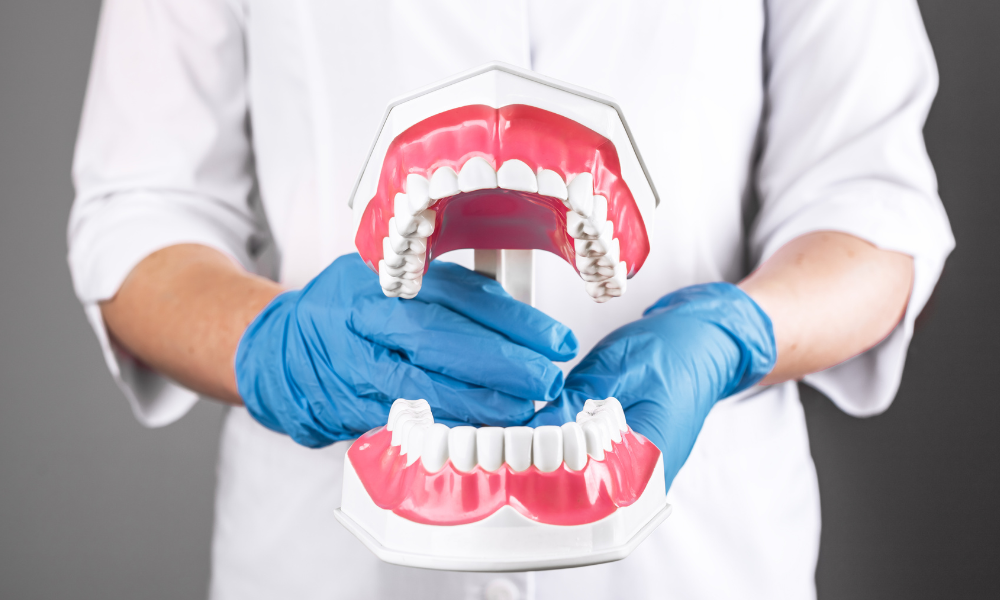
The temporomandibular joint (TMJ) plays a crucial role in your daily activities like talking, chewing, and yawning. When this joint becomes problematic, it can lead to a range of uncomfortable symptoms. In this post, we'll explore common TMJ disorder symptoms, effective home remedies, and guidance seeking professional help.
Common TMJ Symptoms
TMJ disorders can manifest in various ways, and recognizing these symptoms is the first step toward finding relief. Common symptoms include:
- Jaw Pain or Tenderness: Pain in the jaw, particularly near the ear, can be a key indicator of TMJ disorder.
- Clicking or Popping Sounds: Noises when you open or close your mouth can suggest a misaligned joint.
- Difficulty Chewing: Discomfort or pain while chewing food is a common complaint.
- Locked Jaw: Difficulty in opening or closing your mouth fully can occur.
- Ear Pain: TMJ pain can radiate to the ear, sometimes mistaken for an ear infection.
- Headaches: Frequent headaches or migraines can be associated with TMJ issues.
- Facial Pain: Generalized pain in the face or neck area.
Home Remedies for TMJ Relief
While professional treatment is often necessary, several home remedies can help alleviate TMJ pain, while you are waiting to be seen:
- Warm or Cold Compresses: Applying a warm or cold compress to the side of your face can reduce pain and inflammation. Use a warm towel or ice pack for about 15-20 minutes several times a day.
- Over-the-Counter Pain Relief: Non-prescription pain relievers such as ibuprofen or acetaminophen can help manage pain and inflammation.
- Jaw Exercises: Gentle stretching and strengthening exercises can improve jaw mobility. These exercises should be done under the guidance of a healthcare provider.
- Avoid Hard or Chewy Foods: Stick to soft foods that are easy to chew. Avoid gum, tough meats, and crunchy vegetables that can strain your jaw.
- Stress Management: Stress can exacerbate TMJ symptoms. Techniques such as deep breathing, meditation, and yoga can help reduce stress levels.
- Proper Posture: Maintain good posture, especially when working at a desk. Poor posture can strain the muscles of your neck and jaw.
- Jaw Rest: Avoid excessive jaw movements, like wide yawning or loud singing. Keep your jaw relaxed and avoid clenching your teeth.
When to Seek Professional Help
While home remedies can be effective in alleviating pain, professional intervention often is necessary. You should seek help if:
- Persistent Pain: If you experience ongoing pain that doesn’t improve with home remedies.
- Severe Symptoms: Sudden, severe pain or inability to open or close your mouth requires immediate attention.
- Unusual Sounds: Continuous clicking, popping, or grating sounds accompanied by pain.
- Limited Jaw Movement: Difficulty in moving your jaw or a locked jaw.
- Swelling: Noticeable swelling around the jaw or face.
- Ear Problems: Persistent ear pain or hearing issues without an ear infection.
How Our TMJ Clinic Can Help
At our clinic, we specialize in diagnosing and treating TMJ disorders. Our approach includes:
- Comprehensive Evaluation: Using advanced diagnostic tools to understand your specific condition.
- Personalized Treatment Plan: Tailoring treatments to your needs, which may include physical therapy, dental appliances, or surgical options.
- Expert Team: Dr. Jared Bloxham is the region’s orofacial pain specialist. State of the art equipment and his education & training allow him to provide the best care.
Conclusion
TMJ disorders can significantly impact your quality of life, but with the right approach, relief is possible. Do not push off or hesitate to seek professional help. Our clinic is here to support you with expert care and effective treatments.











